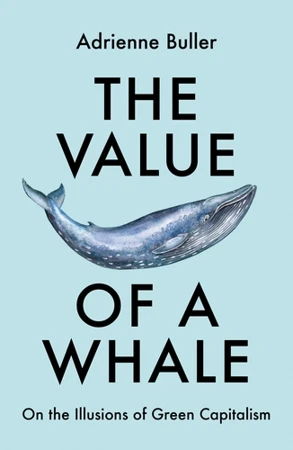The Value of a Whale – On the Illusions of Green Capitalism

Blurb
Public understanding of, and outcry over, the dire state of the climate and environment is greater than ever before. Parties across the political spectrum claim to be climate leaders, and overt denial is on the way out. Yet when it comes to slowing the course of the climate and nature crises, despite a growing number of pledges, policies and summits, little ever seems to change. Nature is being destroyed at an unprecedented rate. We remain on course for a catastrophic 3°C of warming. What's holding us back? In this searing and insightful critique, Adrienne Buller examines the fatal biases that have shaped the response of our governing institutions to climate and environmental breakdown, and asks: are the 'solutions' being proposed really solutions? Tracing the intricate connections between financial power, economic injustice and ecological crisis, she exposes the myopic economism and market-centric thinking presently undermining a future where all life can flourish. The book examines what is wrong with mainstream climate and environmental governance, from carbon pricing and offset markets to 'green growth', the commodification of nature and the growing influence of the finance industry on environmental policy. In doing so, it exposes the self-defeating logic of a response to these challenges based on creating new opportunities for profit, and a refusal to grapple with the inequalities and injustices that have created them. Both honest and optimistic, The Value of a Whale asks us - in the face of crisis - what we really value.
This book ist part of the alternative reading list 2022 by Diversifying and Decolonising Economics (D-Econ). The editors comment has been provided by D-Econ and can also be found on the list, which was compiled by Devika Dutt, Danielle Guizzo, and Ingrid Kvangraven.

